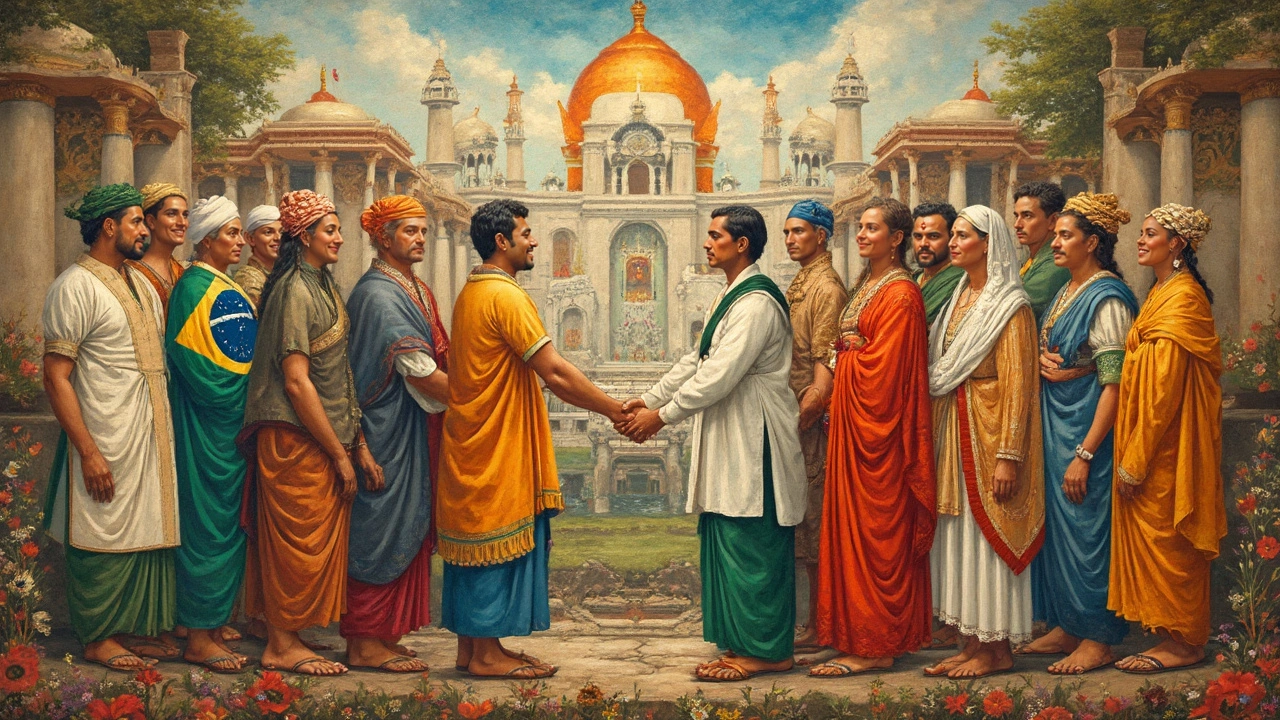Traditional Allies in Indian Culture
When we talk about Traditional Allies, the network of cultural practices that support and reinforce each other across India. Also known as Cultural Partnerships, this idea helps us see how greetings, sayings, and poetry work together to keep traditions alive.
One of the most visible allies is Punjabi greetings, the everyday and festive salutations used by Punjabis to show respect and share joy. From the simple "Sat Sri Akal" to elaborate wedding wishes, these greetings link families, friends, and even strangers. They act as a linguistic bridge, letting people celebrate festivals like Lohri and Baisakhi without missing a beat.
Another key partner is Hindu quotes, short teachings drawn from scriptures such as the Bhagavad Gita that offer guidance on life and spirituality. These verses appear on posters, phone wallpapers, and even WhatsApp status updates, shaping how many Indians think about duty, love, and success. By circulating these quotes, the culture reinforces values that match the warmth of Punjabi greetings.
Then there’s the iconic Indian mottos, national sayings like ‘Satyameva Jayate’ that capture collective ideals. The motto lives on coins, official documents, and school curricula, reminding citizens of truth and integrity. It pairs naturally with Hindu quotes and greetings, creating a three‑part alliance that blends personal belief, community interaction, and national identity.
We also can’t ignore Traditional poetry, the rich verses from poets like Valmiki and modern lyricists that express love, loss, and celebration. Poetry shows up in wedding songs, festival recitations, and everyday chats. When a poet writes about love, the words often echo the sentiment found in a Hindu quote; when a poem praises a hero, it mirrors the pride behind an Indian motto.
How These Allies Shape Everyday Life
Because these cultural pieces support each other, they make it easy for anyone to find the right words for any situation. Need a warm birthday wish? Blend a polite Punjabi greeting with a short Hindu quote about aging gracefully. Want to post a WhatsApp status that feels meaningful? Pull a line from traditional poetry and tie it to the national motto’s call for truth.
The alliance also helps people navigate modern challenges. For example, the guide on "Respectful Terms for Indian People" shows how language evolves while staying rooted in tradition. It uses the same respect found in Punjabi greetings and the ethical tone of Hindu quotes, proving that the allies adapt without losing their core values.
Even topics that seem far‑removed, like the science of motivation or the emotional side of ADHD, connect back to these allies. A motivational quote often mirrors a line from a classic poem, while coping tips may invoke the steady reassurance found in a national motto. This fluid connection is what makes the Traditional Allies model so powerful.
Looking ahead, the blend of these cultural allies will keep guiding new generations. Whether you’re searching for a perfect birthday line, a heartfelt love note, or a simple greeting for a festival, you’ll find that the same underlying network of traditions is there, ready to help you express yourself.
Below you’ll discover a hand‑picked collection of quotes, greetings, poems, and tips that illustrate how these allies work together in real life. Dive in and see how each piece fits into the larger cultural puzzle.

Who is India's Traditional Friend? Unraveling Bonds Beyond Borders
India's traditional friendships stretch beyond borders, with historical ties often directing modern relationships. Delve into these alliances, which provide strength and resilience in diplomatic endeavors. Discover how shared values, trade, and cultural exchanges cement such connections, enriching nations beyond economic gain. Find out the key players in this global friendship game and the tales behind these strong bonds. Unwrapping the rich narratives gives a nuanced perspective on India's place in the world.
Read more